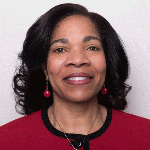Effective regulation of the energy industry requires a diverse set of talents and skills. We employ over 1,400 federal employees in the areas of Accounting, Engineering, Economics, Finance, Law, Information Technology, Business, and the Sciences. Check out our exciting career paths below to see if your interests and skill sets are a good match:
Auditor
Andrews Nortey, Auditor
Education: University of Maryland, MBA in Finance and Accounting
Joined FERC: Full-time, January 2017
Accountants and Auditors at the Commission experience many opportunities to grow, learn, and excel in a constantly changing environment. Each opportunity presents new challenges and increasingly satisfying responsibilities. Throughout their careers, accounting professionals provide direction and insight to the energy industry. Financial Accounting and reporting involve compliance matters of jurisdictional energy companies.
Energy Industry Analysts
Claire Martin, Energy Industry Analyst
Education: The George Washington University, BBA Marketing & BA Environmental Science
Joined FERC: January 2019
Most of your time will be spent reporting on current events in the energy industry. You will be applying skills you learned in school by extracting relevant information and synthesizing large amounts of data. An EIA can work in one or more of the four areas of energy that the commission regulates: oil, gas, electric, or hydropower. Different companies come in with filings that could be complaints, change in rates, or purposed change to their tariff and an EIA reviews the filing and puts out a notice. Typical duties of this job are research, analytical writing, meeting with experts both inside and outside of FERC, policy research, and writing proposals either accepting or rejecting the project.
Attorneys
Adam Eldean, Attorney-Advisor
Education: University of Connecticut, B.A. Economics and Political Science 2009 | George Washington University Law School, J.D. Energy Law, Environmental Law, International Trade 2014
Joined FERC: Fall 2014
Staff attorneys litigate cases before administrative law judges and draft briefs and motions. Attorneys also research and prepare cases under investigation for the Commission. They draft orders and rulemakings for the Commission as well as provide general legal support for the entire organization.
Meet Attorney Advisor, Adam Eldean
Economists
Lauren Campbell, Economist
Education: University of California, Los Angeles, B.A. Economics & International Studies 2003 | Duke University, Nicholas School of the Environment, M.E.M. Environmental Management & Economics 2011
Joined FERC: September 2013
Meet Economist, Lauren Campbell
Economists work with a diverse team of experts from different fields to provide direction and insight on economic matters that affect both the Commission and its jurisdictional companies. They track data that characterize energy markets and prepare reports on the findings with corresponding information used to support the analysis. FERC is rich with opportunities for economists, and assignments can vary widely. Generally speaking, economists closely follow and analyze the trends in the various energy industries to make sure a healthy, competitive market is in place.
Engineers
Elise Dombeck, Civil Engineer
Education: Georgia Tech, B.S. Civil Engineering 2009 | Georgia Tech, M.S. Civil Engineering (Environmental Fluid Mechanics and Water Resources) 2010
Joined FERC: Summer 2014
Meet Civil Engineer, Elise Dombeck
Engineers
Julia Kolberg, Environmental Engineer
Education: University of Wisconsin-Madison, B.S. Biological Systems Engineering 2010 | University of Maryland College Park, M.Eng. Civil and Environmental Engineering
Joined FERC: Summer 2014
Environmental Engineer, Julia Kolberg
Engineers at the Commission experience many opportunities to grow, learn, and excel in a constantly changing environment. They are presented with many meaningful and intellectually stimulating challenges. With workloads that span both the electric and natural gas industries, engineers can utilize their technical education as a springboard for future success. Many engineers have the opportunity to travel across the U.S. for on-site visits to conduct on-site inspections of the nation's largest energy facilities.
Environmental Specialists
Jeanne Edwards, Environmental Biologist
Education: University of California, San Diego, B.S. Biochemistry and Cell Biology 2001
Joined FERC: Summer 2006
Meet Environmental Biologist, Jeanne Edwards
Environmental careers at the Commission include fishery and wildlife biologists, terrestrial ecologists, hydrologists, environmental protection specialists, outdoor recreation planners, and cultural resource specialists. The environmental staff at the Commission concentrates on the siting of gas pipelines and construction and operation of hydroelectric projects, including compliance with license conditions. Scientists have the opportunity to travel across the U.S. for on-site inspections of the nation's largest energy facilities.
Environmental specialists prepare environmental impact statements and assessments that report on the effects on water quality, fisheries, vegetation, wildlife, historic and cultural resources, soils and geologic resources, land use, air and noise quality, and recommend mitigation measures and license conditions. The Commission relies on the results of this analysis and reporting when making determinations on whether to approve proposed pipeline or hydroelectric projects.
Human Resources Specialists
Tiffany Kaufman, Human Resources Specialist (Employee Development)
Education: Washington State University, B.A. Public Affairs
Joined FERC: Intern, Summer 2016 | Full-time, January 2017
Human Resources Specialists are responsible for staffing, recruiting, and retaining employees in the workforce. They also handle employee relations, payroll, benefits, training, orientation and more. Specialists work to hire and retain the best employees through performing job analysis; workforce planning and analysis; and advising management in identifying, attracting, and retaining a high-quality and diverse talent to support FERC’s mission. Human Resource Specialists work collaboratively with office managers to plan, administer, and evaluate programs designed to develop employees and manage learning in the Commission.
IT Specialists
Solomon Karchefsky, IT Specialist (Cyber Security)
Education: University at Buffalo SUNY, B.S. Computer Science 2013 | University at Buffalo SUNY, M.S. Management Information Systems 2015
Joined the FERC: Full-time, June 2015
Meet IT Specialists, Solomon Karchefsky
Information Technology Specialists experience many opportunities to grow, learn, and excel in a constantly changing environment. They provide expertise and assistance in identifying, communicating, and seeking comprehensive solutions to significant potential cyber and physical security risks to the energy infrastructure under the Commission’s jurisdiction. IT Specialists identify emerging security requirements and issues and provide technical support on cyber-security as it affects energy infrastructure and critical assets and more.
Management Analysts
Michele Chambers, Program and Management Analyst
Education: California State University (Hayward), B.S. Criminal Justice and Law Enforcement Administration | Command and General Staff College, M.S. Military Arts and Science
Joined FERC: May 2016
Meet Management Analyst, Michele Chambers
Management analysts work in various offices throughout the Commission. They provide advice and assistance on office operations and programs by conducting analysis of program data and identifying potential areas of improvement.
In addition to these career opportunities, FERC employs budget analysts, paralegal specialists, communication specialists, and other professionals who help to accomplish FERC’s mission.









